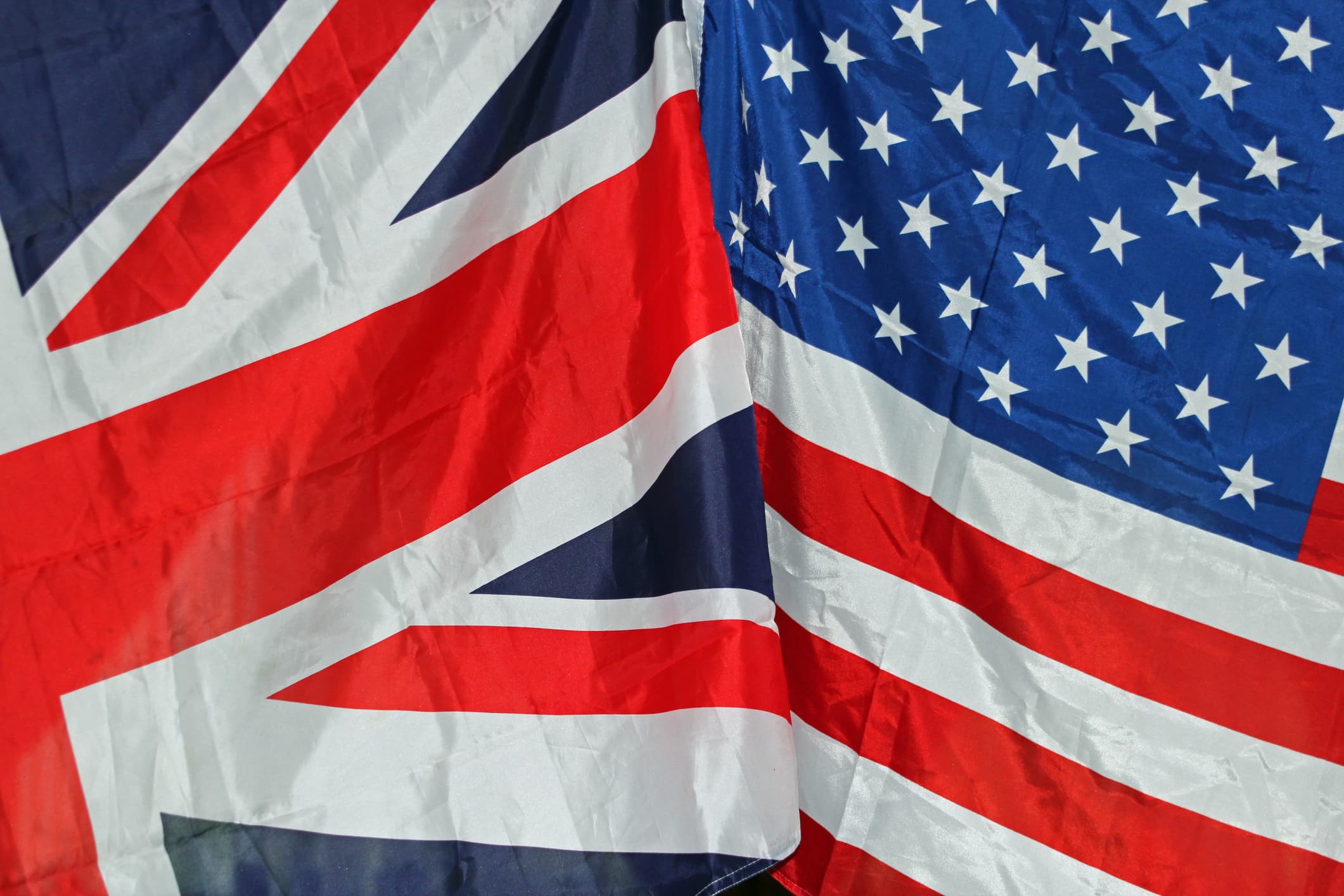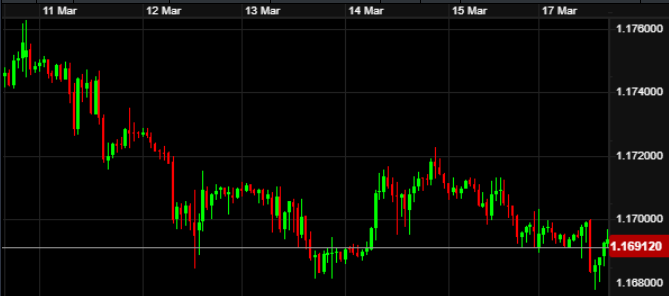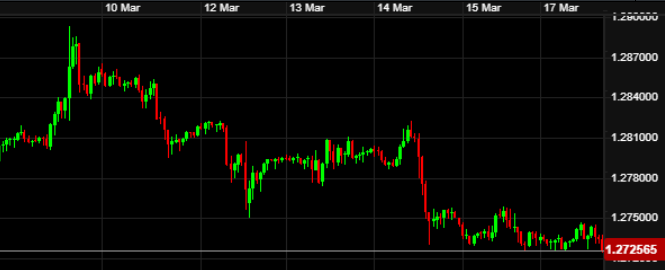ACM Update 18-03-24

Is the UK recession already over, only a month after we all found it had (technically) started? Growth figures for January, revealed last week, showed a monthly growth of 0.2%. Not spectacular, but enough to create optimism. Inflation in the US meanwhile remained stubborn, providing support to the Dollar.
A big few days ahead for monetary policy, with interest rate announcements from the Federal Reserve & Bank of England, as well as the latest UK inflation figures.
The UK economy “bounced back” in January with a 0.2% month-on-month growth in GDP. This has created a positive sentiment, confirming that the technical recession which closed out 2023 may well have been as short and shallow as they come. Many economists had predicted the slight uptick in growth though, so the figures didn’t come as too much of a surprise, causing little FX movement.
The biggest contributor to the January growth was the services sector, boosted by supermarket and high street spending in the January sales. Provided growth figures are not a disaster in February and March, the economy should re-emerge from its late 2023 recession by the end of the first quarter.
Unemployment figures weren’t quite as favourable though, with the headline figure bouncing back up to 3.9%. According to a BBC article, this means that more than a fifth of UK adults (of working age) are not looking for work. The number of those claiming benefits rose, but fractionally less than expected. Average earnings meanwhile continues to outrun inflation, but at a slightly slower pace than last month of 5.6%.
Rishi Sunak spoke in an ITV interview last week and ruled out the possibility of a general election on 2nd May. This would have meant voting on the same day as local elections are also being held. The Prime Minister spent the weekend answering questions about his leadership, telling his Conservative colleagues that the economy is turning a corner and urging MP’s to “stick with him”.
All was very quiet on the Eurozone side of things last week. French inflation data was the only real release, recording 3.0% in February, slightly down from 3.1% in January.
One highlight was a speech from ECB member and Governor of the National Bank of Belgium, Pierre Wunsch. His current sentiment is that he and his fellow policymakers will at some point eventually have to reduce borrowing costs, without being certain that inflation is returning to their 2% mandate. He stated “at some point, we’ll just have to say okay, we believe it is going to work and were going to take a decision. I don’t think it is going to be before too long”.
His French ECB colleague, Francois Villeroy de Galhau, suggested in a separate speech that a cut could come “as soon as the spring”. For now markets still expect the first ECB cut to come in June.
Overall sterling dropped back, primarily on the political wobbles within parliament, but also due to Eurozone news supporting interest rates remaining high for a while to come yet.
Moves last week on GBP-EUR can be seen in the chart below:

Over in the US, CPI inflation unexpectedly took a jump back upwards from 3.1% in January, to 3.2% in February. Expectations had been for the metric to remain flat as the Federal Reserve seeks to overcome the final hurdles in getting inflation back to its 2% target.
The figures suggest that Powell & Co may wait longer before cutting interest rates. As it happens, this weekend marked two years since the Fed started hiking interest rates to battle inflation. The next Fed announcement comes this week on Wednesday evening, but it looks like the committee may now be behind other G7 countries in cutting interest rates. This has offered support to the Dollar, pushing back versus GBP.
We also saw Retail Sales figures falling short of expectation, showing a monthly growth of 0.6% in February rather than the 0.8% expected. US Weekly Unemployment claims grew by less than expected in a positive sign for the jobs market.
Overall, a much better week for the Dollar, as illustrated in the chart below:

The week ahead:
Monday – Rightmove HPI (07:00 UK time), Eurozone Final CPI exp 2.6% (10:00)
Tuesday – Bank of Japan rate announcement (03:00), Reserve Bank of Australia rate announcement (03:30), Canadian CPI Inflation (12:30)
Wednesday – UK CPI Inflation exp 3.5% (07:00), ECB Lagarde speech (08:45), Federal Reserve rate announcement (18:00) & Press Conference (18:30)
Thursday – Swiss National Bank rate announcement (08:30), FRA/GER/EU/UK Manufacturing & Services PMI (08:15-09:30), Bank of England rate announcement (12:00), US Manufacturing & Services PMI (13:45)
Friday – UK Retail Sales (07:00), Fed Powell speech (13:00), ECB Euro Summit (all day)
Interest rate announcements galore this week as the central bankers of the world clearly want to get their policy decisions out the way early and enjoy an extended Easter break!
The UK highlights start with the latest inflation figures (from February) on Wednesday morning. These are expected to see a reasonable drop down to 3.5% from 4.0% the previous month. This should show that the Bank of England’s inflation reducing plan is still working, but is unlikely to be enough to encourage a change in interest rates come Thursday lunchtime.
The last meeting on 1st February saw six members vote to hold rates, whereas this could well rise to seven or eight this time. Swati Dhingra will remain the outlier calling for a cut, but reading recent narrative it seems unlikely that other members will join her. If any do though, that could cause GBP negativity. UK Retail Sales for February follow on Friday morning.
US news will be a case of all eyes on the Federal Reserve come Wednesday evening. The Fed are edging towards a cut, but with inflation coming down and the US economy still performing very strongly, they aren’t going to be forced into a cut in the same way as might be the case in the growth-lacking Eurozone.
We expect the meeting to keep interest rates as they are, however Jerome Powell’s press conference will be monitored for changes in language to suggest the committee are moving nearer towards a cut in rates.
For the Eurozone, inflation is expected to show a drop to 2.6% in the latest round of numbers. That and a speech from Christine Lagarde on Tuesday morning are the picks of the week there.
Elsewhere, we have a number of other interest rate announcements from Switzerland, Australia and Japan. The latter of these is expected to produce the first interest rate hike in 17 years from the Bank of Japan. Some estimates suggest the likelihood of the end of the current negative interest rate experiment as high as 90%.
So all in all, a busy week to come for market volatility. Should you have requirements which could be impacted by USD or GBP volatility this week, ensure to reach out to the team for further guidance. We can discuss appropriate risk management strategies to protect your exposure.
Hold on tight and have a great week.